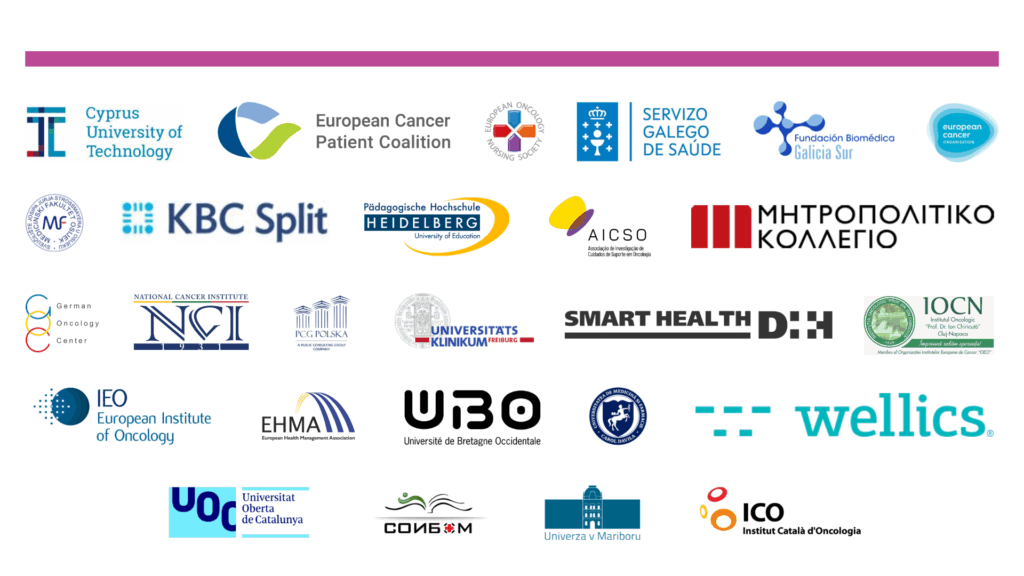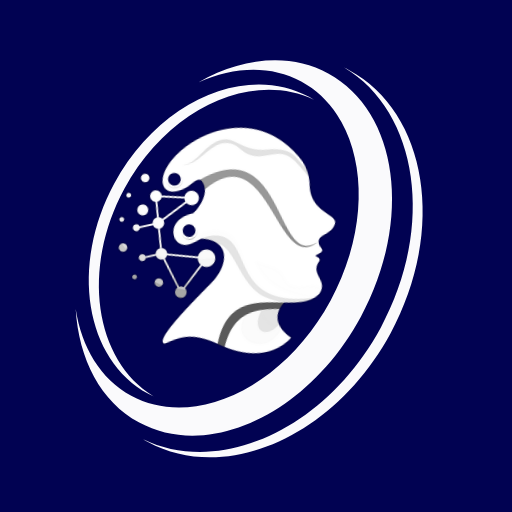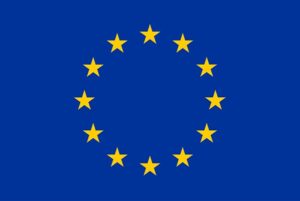
Aim: To Empower the Cancer Workforce with New Digital Skills. The TRANSiTION education programme addresses the immediate needs of healthcare professionals and non-clinical staff while building a digital culture that is sustainable and adaptable to future opportunities for better cancer care across Europe.
Description The TRANSiTION project is developing an advanced education programme for healthcare professionals and non-clinical staff (i.e. health managers), which will equip them with digital skills needed to exchange information more efficiently and effectively with patients and other professionals. The project commenced by assessing and mapping the current digital skills and has engaged directly with stakeholders to identify their specific needs. This will enable and facilitate professionals and non-clinical staff to adopt new digital tools and integrate them into their everyday practices enabling a smoother digital transition. Led by the Cyprus University of Technology (CUT), the project collaborates with various organisations and uses a problem-solving, teamwork approach to enhance competencies. TRANSiTION has a consortium of 25 partners from 14 member states with expertise in professional development and training programmes in the healthcare sector.
EU4HEALTH

Aim: To improve health and digital health literacy related to cancer prevention and care 1) by developing tailored training for healthcare professionals, citizens, and cancer patients to increase understanding of cancer prevention, diagnosis, and care, 2) by creating the INTERVENE Health Literacy Hub, a multilingual, web-based platform offering personalised, culturally sensitive, and accessible health information, and 3) by enhancing communication skills and responsiveness of healthcare professionals to low health literacy, supporting informed decision-making, early detection, and reduction of health disparities across EU Member States.
Description Cancer remains the second leading cause of premature mortality in Europe, with a growing number of new diagnoses each year. Low health literacy is directly linked to poorer health outcomes, reduced preventive behaviours, and healthcare inequalities. Recognising the pivotal role of health and digital health literacy, iNTERVENE responds to Europe’s Beating Cancer Plan and aims to empower patients, citizens, and professionals through education and digital innovation. The project builds upon past initiatives such as eCAN, TRANSiTION, PROLEPSIS, and aligns with EU digital health strategies and health workforce development plans.

Aim: To enhance psychosocial oncology care across Europe, 1) by developing and piloting a knowledge hub, virtual observatory, and training system to collect, organize, and disseminate best practices and resources related to psychosocial oncology care, 2) by advancing screening efficacy for mental health challenges among cancer patients, carers, families, and healthcare professionals, and 3) by utilizing artificial intelligence, machine learning, and behavioral science to deliver tailored interventions and inform policymaking in participating Member States.
DescriptionThe DESIPOC Project was initiated to address the significant variations in psychosocial oncology care provision across Europe. Recognizing the lack of standardized initiatives to tackle mental health challenges faced by patients, carers, families, and healthcare professionals, DESIPOC aims to bridge these gaps by creating a comprehensive platform that leverages technological innovations and interdisciplinary approaches.
EU Joint Action under the EU4Health Programme (EU4H)
The Agora 3.0 infrastructure creates a training, validation and implementation environment for innovative technology and software solutions that bring value to healthcare delivery. The proposal is not a typical attempt to introduce a single new piece of equipment in a laboratory setting, but rather the acquisition of both hardware and software to establish the foundations of a futuristic, sustainable, and inclusive Health Technology and Data Hub.
Cypriot Research and Innovation Foundation – Infrastructure
A Streamlined Geriatric and Oncological Evaluation Based on IC Technology for Holistic Patient-Oriented Healthcare Management for Older Multimorbid Patients.
Aim:To improve the care and quality of life for older multimorbid patients through a personalized, integrated, and cost-effective healthcare approach.
Description GERONTE focuses on designing and testing an innovative care model for elderly patients with cancer and other chronic conditions. At its core is Holis™, an ICT tool that integrates clinical and patient-reported data in real time. The project promotes a multidisciplinary healthcare team approach, aiming to streamline care coordination, reduce duplication, and improve health outcomes. The project spans three EU countries and includes 16 study sites to validate its patient-centered model. GERONTE is led by a consortium of European partners and includes stakeholder engagement at all levels.
Horizon 2020 (EU Research & Innovation Programme)
Enhancing Palliative Care Education Through Collaborative Assessment Tools.
Aim: To establish quality indicators and develop a culturally and ethically appropriate, inclusive, evidence-based self-assessment tool (CODE-YAA) for palliative care education, aiming to set a gold standard for high-quality education and training in palliative care across the WHO European Region.
Description The CODE-YAA@PC-EDU (COllaboratively DEveloped culturallY Appropriate and inclusive Assessment tool for Palliative Care EDUcation) project addresses the increasing need for palliative care education due to age-related rises in chronic disease mortality. It focuses on integrating and improving palliative care education and training, particularly in primary health care settings, which are considered the most sustainable and cost-effective models for palliative care delivery. The project will develop and provide the CODE-YAA tool to inform leadership priorities and evidence-based decision-making related to palliative care education and training.
COST Action CA22127 (European Cooperation in Science and Technology)Advancing Leadership, Training & Health Equity in Oncology Nursing Across Europe
Aim: To strengthen the oncology nursing workforce across Europe by 1) Enhancing leadership and advocacy skills among cancer nurses, 2) by developing and delivering innovative, cross-national education and training programmes, 3) by promoting workforce resilience and well-being through structured support mechanisms, 4) by strengthening the visibility and influence of oncology nursing in European cancer policy, and 5) fostering equity in access to professional development across EU Member States.
Description The ALTHEA Project was initiated to address critical challenges faced by the oncology nursing workforce, including shortages, burnout, and inequities in access to training. As cancer care becomes increasingly complex, the role of highly skilled, well-supported oncology nurses is more vital than ever. ALTHEA builds on the success of prior collaborative efforts in nursing education and workforce development and is closely aligned with Europe's Beating Cancer Plan and the broader goals of the EU4Health Programme.
EU Joint Action under the EU4Health Programme (EU4H)
Management and Leadership in Social and Health Care
Aim: To equip care managers across Europe with the competencies needed to lead the implementation of person-centered care (PCC) in health and social care services. COMPASS empowers managers to motivate and guide teams, strengthen care relationships, and foster environments based on dignity, mutual growth, and well-being.
Description While frontline care workers often receive training in PCC, managers and leaders are rarely offered tailored education to lead such models. COMPASS addresses this gap by developing an innovative, blended learning program for care managers. It also aims to build a European Community of Practice, allowing leaders to exchange experiences and shape a shared vision of humanistic, person-centered care leadership.
Erasmus+
Enhancing Digital Capabilities of Cancer Centres in the European Union
Aim: The aim of the eCAN plus project is to enhance the digital capabilities of cancer centers within the EU by implementing comprehensive training programs to develop digital skills relevant to telemedicine, remote monitoring, and e-health tools among healthcare professionals, patients, and the general public. Enhancing digital collaboration within and between cancer centers. Implementing clinical applications of telemedicine tools in various cancer care settings. Creating and implementing a robust, integrated framework for cancer patient follow-up and telemonitoring throughout Europe.
Description Building upon the foundations laid by the initial eCAN Joint Action, eCAN Plus aims to further integrate digital health solutions into cancer care across the European Union. Recognizing the disparities in digital capabilities among cancer centers, particularly in Eastern Europe, this initiative seeks to address inequalities in cancer prevention, early detection, and care through the adoption of advanced eHealth tools.
EU4HEALTH
Joint Action on Strengthening eHealth Including Telemedicine and Remote Monitoring for Health Care Systems for Cancer Prevention and Care.
Aim: The eCAN project aimed to provide a framework of recommendations for integrating telemedicine and remote monitoring into health care systems, thereby enhancing the effectiveness, efficiency, and quality of cancer prevention and care across the European Union, especially during health crises like COVID-19.
Description The eCAN Joint Action addresses the need to integrate telemedicine and remote monitoring into cancer care across Europe. Despite advancements in eHealth, disparities exist in access to telemedicine services, particularly in remote and rural areas. The COVID-19 pandemic highlighted the importance of telemedicine in maintaining continuity of care. eCAN aims to harmonize telemedicine regulations and explore the efficacy of teleconsultation and telemonitoring in cancer care to reduce inequalities and improve patient outcomes.

Promoting Health Literacy for the Prevention and Control of Chronic Conditions Among Informal Carers
Objectives 1) To increase carers’ awareness of the health risks they face by avoiding preventive behaviors, 2) to empower them to take control of their health through education, self-monitoring, and lifestyle changes, and 3) to develop a mobile app personalized to each user’s needs and characteristics to support long-term behavior change The PROLEPSIS project addresses the health behavior challenges faced by informal carers—particularly women—who often neglect their own preventive health due to caregiving responsibilities. These individuals are less likely to attend preventive screenings like mammography for early detection of breast cancer due to limited time, low health literacy, and increased caregiving demands.
Description The project addresses the issue of low engagement in preventive health behaviors among informal carers, especially women. These individuals often sacrifice their own health due to caregiving responsibilities, leading to missed screenings (e.g., mammograms), poor lifestyle habits, and increased health risks. The project aims to empower carers to prioritize their own health through awareness, education, and supportive digital tools.

A Multimodal AI-based Toolbox and an Interoperable Health Imaging Repository for the Empowerment of Imaging Analysis Related to the Diagnosis, Prediction, and Follow-up of Cancer
Aim: The INCISIVE project aims to develop and validate an AI-based toolbox that enhances the accuracy, specificity, sensitivity, interpretability and cost-effectiveness of existing cancer imaging methods.
Description INCISIVE enhances AI-based toolbox and a federated health imaging repository to significantly enhance the accuracy, prediction, and follow-up of cancer diagnosis. It tackles major challenges such as the complexity of medical image processing for AI applications, lack of annotated training data, and limited sharing of imaging datasets. The project integrates multimodal imaging, builds trust in AI tools, and ensures legal and ethical data sharing across Europe.
HORIZON 2020
Strengthening the capacity of health and social care professionals to prevent and combat elder abuse
Aim: A project aiming to strengthen the capacity of professionals working with older adults by equipping them with the skills, knowledge, and tools needed to prevent and address elder abuse. It also aims to promote a rights-based and person-centered approach to elder care.
Description The SAVE project focuses on addressing the under-recognized and under-reported issue of elder abuse in healthcare and social service settings. Elder abuse, which can take many forms including physical, emotional, financial, or neglect, often goes unnoticed by professionals due to a lack of awareness and training. SAVE aims to empower health and social care professionals by enhancing their ability to identify, prevent, and respond effectively to suspected abuse. This is achieved by developing tailored training programs and practical tools, fostering a collaborative response among professionals, and promoting respect and dignity for the elderly population.
Erasmus+
E-Health Literacy Learning Skills Among Carers of Older People and People with Dementia
Aim: The aim of the eLILY project is to equip informal and formal carers with the digital health skills necessary to effectively support older people and individuals with dementia, using a blended training program combining face-to-face and e-learning modules.
Description The eLILY project tackles the digital divide in healthcare by improving the e-health literacy of carers, particularly those looking after frail older adults and people with dementia. Many carers lack the digital skills needed to access and use health-related information and digital services. This gap can limit their ability to provide safe, informed, and efficient care. eLILY responds to this challenge by offering accessible, multilingual training based on the Lily model, adapted for today’s web-based technologies.
Erasmus+
Training Program in Elderly Care and Infectious Disease Prevention for the Integration of Refugees
Aim: The HERO project aims to develop a training program for caregivers to be working in the elderly care sector. The program is particularly addressed to caregivers from Middle Eastern and African countries as refugees and intends to help them integrate into European society.
Description HERO proposed a dual solution by training refugees and migrants in elderly care and infectious disease prevention, thus helping them integrate into the labor market while supporting the healthcare sector’s increasing needs. The project also promoted social cohesion, cultural competence, and inclusive education practices.
Erasmus+
A Collective Intelligence Platform to Support Cancer Champions.
Aim: To improve the quality of life for older cancer survivors through innovative, data-driven, and personalized healthcare services.
Description LifeChamps is a digital health project designed to support middle-aged and older cancer survivors, particularly those who are pre-frail or frail. It uses artificial intelligence and big data analytics to monitor health-related quality of life (QoL) and provide personalized clinical support. The system includes a digital platform, mobile health tools, and a smart recommender engine tailored for patients, caregivers, and clinicians. Coordinated by the Aristotle University of Thessaloniki, the project brought together experts in health informatics, oncology, aging, and patient engagement.
Horizon 2020 (EU Research & Innovation Programme)
![]()
© 2025 eOncoRise